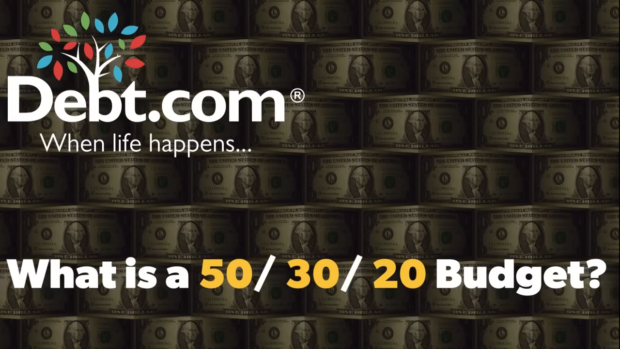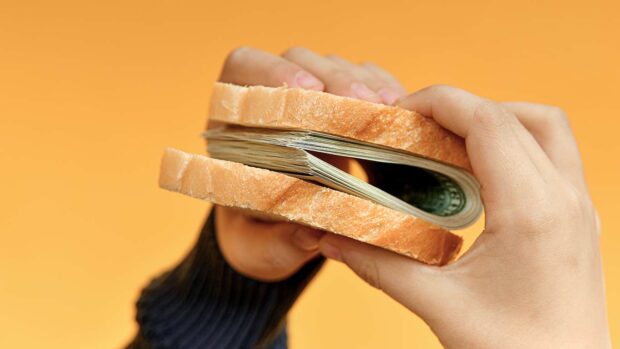Inflation is so high, even six-figure earners are living paycheck to paycheck.
Pollsters from fintech companies PYMENTS and LendingClub partnered to quiz Americans on how they feel about their financial situations. More than 4 in 10 earning more than $100,000 annually say they live paycheck to paycheck.
The Paycheck to Paycheck Report was a national survey of more than 3,000 Americans. Back in February, inflation reached a 40- year high, resulting in 3 out of 5 respondents saying it’s “increasingly difficult to make ends meet.”
“Every day we see Americans relying on credit cards as a crutch,” says Anuj Nayar, LendingClub’s financial health officer, “which is a horrible way to borrow money if you don’t intend to pay off the entire balance at the end of every month.”
The writing’s on the wall: it’s time to cut back
Just two weeks ago, Debt.com reported Americans are spending 15 percent more than they were before the pandemic. That data was pulled from a national poll of 1,000 Americans by TD Ameritrade.
Most of the overspending was contributed to psychological factors more than a necessity: dining out, entertainment, fast food, and coffee. All of the pent-up demand because so many have been cooped up due to the global health crisis.
The amount those survey respondents earn each year is unclear. What is clear: Inflation has risen to the highest it’s been since 1981.
“It’s time for consumers in all income brackets and geographies to review their financial situations and look for better ways to manage their cash flow,” Nayar says. “Take a long, hard look at ways to trim down unnecessary expenses.”
When you can’t control costs – take control of your spending
The more Americans spend, the higher costs of living will go up. When there is a short supply, the more consumers contribute to the demand – the higher prices will increase.
Back in February, Debt.com reported the headline “Americans Are More Scared of Inflation Than COVID.” Online insurance marketplace Policygenius polled more than 1,000 Americans on how they felt about their finances. Just under 3 in 5 said they felt anxious – twice as many who said the same about another coronavirus variant.
“While we only have so much control over outside sources of anxiety there are things we can do to ease our financial stressors,” Policygenius CEO Jennifer Fitzgerald says, “like making a budget, building an emergency fund, and securing insurance to provide peace of mind for you and your family.”
Howard Dvorkin, CPA and chairman of Debt.com, agrees and feels her advice can help combat rising prices.
“One big cause [of inflation] is consumer spending – what you and I buy,” Dvorkin said. “We put the strain on the supply chain. We drive prices up when we drive our cars more than we did during the pandemic.”
As far back as August 2021, Dvorkin publicly went against the popular opinion that inflation would slow down and advised Americans on how to spend more wisely. Here’s a brief guide to “keep inflation from deflating your monthly budget.”
Inflationary periods have come and gone in the past. You may not be able to completely stop the bleeding. But making a plan can help triage the wound until this storm passes.









